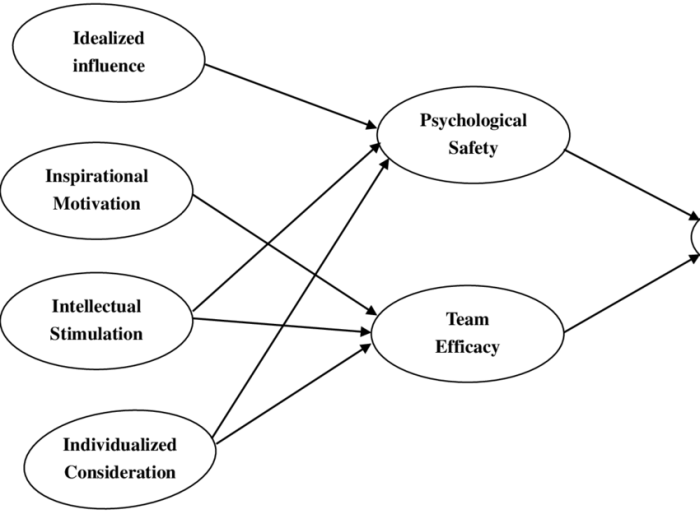Research on transformational leadership is only partially supported. – While research on transformational leadership has gained significant traction, its findings remain partially supported. This introductory paragraph delves into the complexities of this leadership style, exploring its theoretical underpinnings, measurement challenges, and impact on organizational outcomes.
Despite its popularity, transformational leadership has faced scrutiny due to inconsistent findings and methodological limitations. This paper aims to provide a comprehensive overview of the research landscape, highlighting both the strengths and limitations of existing studies.
Research Overview

Transformational leadership is a style of leadership that emphasizes the development of followers and the creation of a positive and motivating work environment. This style of leadership has been shown to have a positive impact on organizational outcomes, such as employee satisfaction, productivity, and profitability.Research
on transformational leadership has been conducted for several decades, and there is a large body of evidence that supports the effectiveness of this style of leadership. However, there are also some limitations to the research on transformational leadership, such as the lack of longitudinal studies and the difficulty in measuring the impact of this style of leadership on organizational outcomes.
Theoretical Perspectives

There are a number of different theoretical perspectives on transformational leadership. One of the most influential perspectives is the charismatic leadership theory, which suggests that transformational leaders are able to inspire followers by creating a shared vision and by demonstrating personal charisma.
Another influential perspective is the servant leadership theory, which suggests that transformational leaders are focused on serving the needs of their followers and on creating a positive work environment.
Measurement and Assessment: Research On Transformational Leadership Is Only Partially Supported.
There are a number of different methods used to measure transformational leadership. One common method is the Multifactor Leadership Questionnaire (MLQ), which is a self-report questionnaire that measures a number of different leadership dimensions, including transformational leadership. Another common method is the Leadership Practices Inventory (LPI), which is a 360-degree feedback instrument that measures a number of different leadership behaviors, including transformational leadership.The
strengths of these methods include their reliability and validity. However, there are also some limitations to these methods, such as the fact that they are self-report measures and that they may be influenced by social desirability bias.
Antecedents and Outcomes

There are a number of factors that contribute to the development of transformational leadership. One important factor is the leader’s personality. Transformational leaders tend to be extroverted, open to new experiences, and have a high need for achievement. Another important factor is the leader’s experiences.
Transformational leaders often have a history of success in leadership positions and have been exposed to positive role models.Transformational leadership has a positive impact on a number of organizational outcomes, including employee satisfaction, productivity, and profitability. Transformational leaders are able to create a positive and motivating work environment that encourages followers to perform at their best.
Future Directions

There are a number of future research directions for the study of transformational leadership. One important direction is to conduct more longitudinal studies to examine the long-term effects of transformational leadership. Another important direction is to develop more effective methods for measuring the impact of transformational leadership on organizational outcomes.The
research on transformational leadership has the potential to have a significant impact on leadership development and practice. By understanding the factors that contribute to the development of transformational leadership and the impact of this style of leadership on organizational outcomes, organizations can develop more effective leaders and improve their performance.
Query Resolution
What are the key findings of research on transformational leadership?
Transformational leadership has been linked to improved organizational performance, employee satisfaction, and innovation.
What are the limitations of research on transformational leadership?
Inconsistent findings, methodological limitations, and difficulty in isolating the effects of transformational leadership pose challenges to research.
What are the future directions for research on transformational leadership?
Future research should focus on refining measurement approaches, exploring contextual influences, and investigating the long-term impact of transformational leadership.